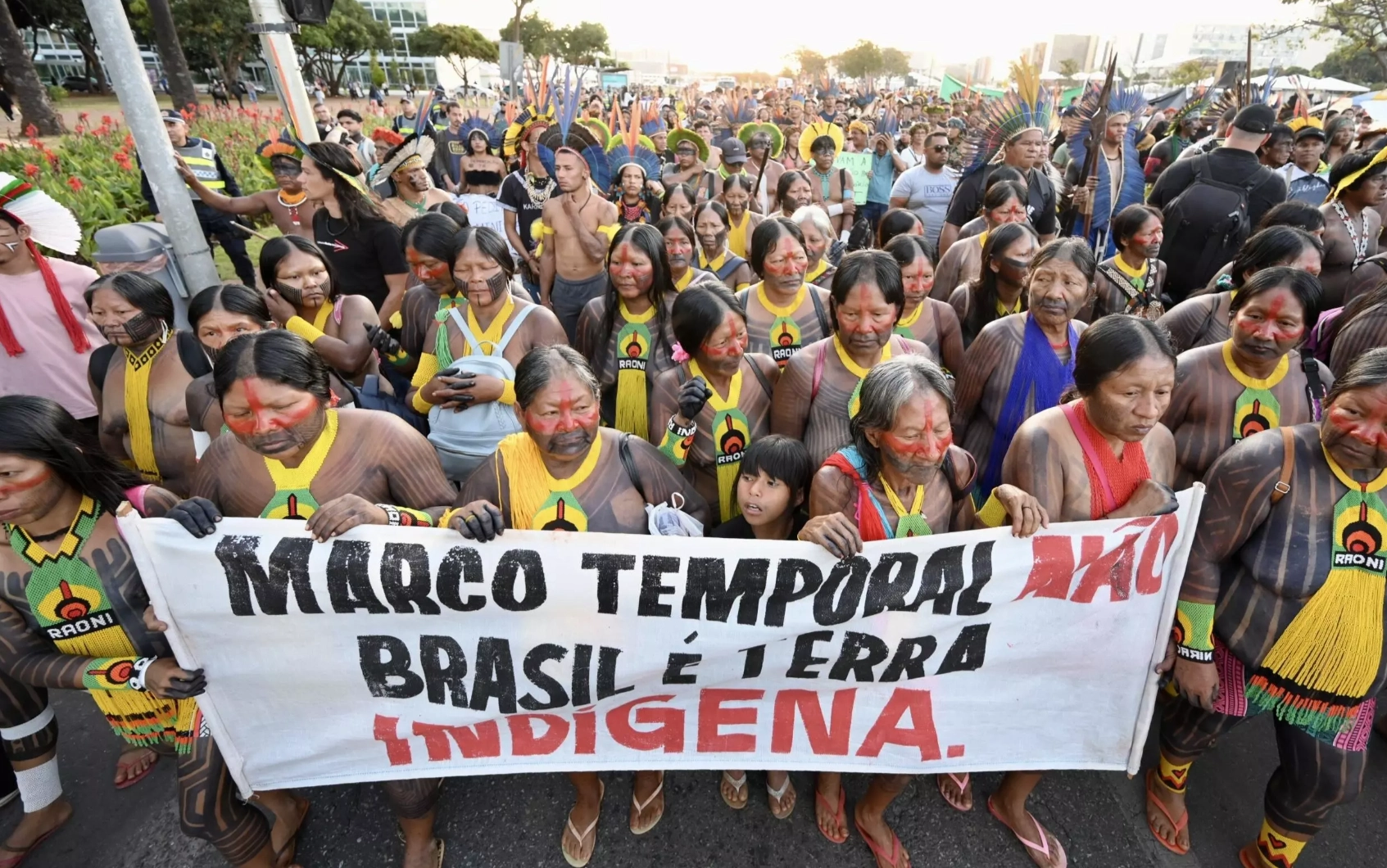Indigenous land demarcation criteria are once again an important issue for Brazil’s National Congress in the second half of 2023. In the month that marks the thirty-fifth anniversary of the promulgation of Brazil’s new Federal Constitution, the Federal Senate debates the creation of legal tools to legitimize the thesis that indigenous groups can only have their lands demarcated if they were already occupying them when the new Brazilian Republic was installed, in October 1988 (time frame).
The so-called time frame thesis is very controversial. It is an idea that chronologically limits the indigenous’s right of possession over important swaths of Brazilian territory. In 2003, the Ibirama-Laklãnõ Indigenous Land was created, in the State of Santa Catarina, which covers some eighty thousand square kilometers and is currently occupied by the Xogleng indigenous people. Faced with the demands of dozens of farmers in the region, the Santa Catarina government brought the matter before the Federal Supreme Court, claiming that the new owners of the land were not there when the Brazilian Constitution was enacted and therefore should not have legal control over the area.
A legal opinion from the Attorney General’s Office in 2009 further crystallized the basis of the time frame thesis. In relation to the demarcation of the Raposa-Serra do Sol indigenous reserve in the north of the country, it was argued that it could only be demarcated once this time criterion had been met and, in the face of this impasse, a ruling from the Brazilian Constitutional Court became necessary, given the need for the Judiciary to rule on matters for which it had been convened.
The case of the impasse between indigenous people and rural landowners in Santa Catarina would have the power to influence more than three hundred land demarcation processes throughout the country and, with the decision of the Supreme Court, would have general repercussions. On September 21, 2023, twenty years after the beginning of the litigation, the majority of the Court’s judges decided to annul the temporary limitations, guaranteeing a victory for indigenous peoples throughout the country, who will be able to claim ownership of their natural spaces.
For the moment, the most important issue to know is that, after having been considered by the Brazilian legislature, Bill 2903 of 2023 is going for presidential sanction, having been approved by the Chamber of Representatives and the Federal Senate. Rural activists from all over the country, through parliamentary fronts, have pressured their representatives to create new legislation to stop the effectiveness of the decision issued by the judiciary in favor of native peoples.
At a time of great polarization in Congress, which numerically has a majority of conservative representatives, the Powers of the Republic are on a collision course. In recent interventions, the president of the Senate, Rodrigo Pacheco, has criticized the frequent intervention of the judiciary in congressional matters. The approved bill received massive support not only from groups linked to national agribusiness but also from important sectors such as evangelicals and public security groups.
Jurists from Brazil and abroad have been consulted on the ability of a bill to overturn a binding decision of the country’s highest court. On one side, there are those who defend judicial power and consider that the recent ruling guarantees the fundamental rights of indigenous peoples and that, for this reason, it is beyond the review of Congress. On the other extreme are those who define the judicial decision as an excess of the powers guaranteed to the Supreme Court by the 1988 Constitution and advocate that the Legislature act to rebalance the powers. President Lula has already announced that he will veto the proposal, considering it unconstitutional. Legislators of all political tendencies have made public their intention to override the likely presidential veto.
Faced with such diverse interests, represented in the most important political spheres of the country, the Constitution, which has been in force for one more year, is undergoing a litmus test. The complexity of this scenario is intended to be useful to clearly define the limits of the balance of powers devised in the 17th century by the founding fathers of American democracy, Madison, Hamilton, and Jay, and applied to several Latin American countries. Despite the moments of the democratic order breakdown, the countries of the region are eager to improve their political regimes through situations that allow us to know the solidity – or not – of their institutions.
*Translated by Janaína Ruviaro da Silva from the original in Portuguese.













